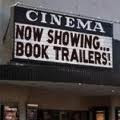Editing vs Critiquing
Is There a Difference Between Editing and Critiquing
As a member of two writing groups and a creative writing class, I am responsible for many critiques. I want to give my peers thoughtful and constructive feedback; help them improve their writing. What should I actually do while I’m reading?
Since the groups are focused on critiques, editing isn’t necessary.
What’s the difference?
First, the critique and editing process require you to read through the piece and decide what works and what doesn’t. A critic brings attention to areas in need of improvement and offers solutions allowing the writer to make the changes. An editor provides a solution by making the change in the actual writing.
Edit
An editor has the authority to actually make the changes. The writer accepts the changes with the understanding it’s the best solution. They must trust the editor to do what’s best for the writing.
Critique
On the other hand, a critic provides the writer with their observation of the piece. They evaluate the positive and negative aspects. Start out with big things like structure and style. Then move closer to sentence structure, description and dialogue. Finally, point out any spelling, punctuation or grammar mistakes.
Here are a few generic examples:
1. What did you like about the piece? Be specific.
a. “The description in this sentence created a vivid image.”
b. “Your dialogue makes me feel like I'm overhearing a real conversation.”
c. “The setting really brings me into the story.”
2. What improvements did you observe? Be specific.
a. “I don’t understand what’s going on here.”
b. “This sentence sounds awkward.”
c. “You’re shifting tenses here.”
Your observations allows the writer to determine if their intentions came across in their writing. If they didn’t, it’s their job to go back and fix it.
Don’t let your inexperience keep you from giving strong feedback. Be confident in your ability to recognize good writing. You also know when things aren’t working. Your unique reading experience is important to the improvement of the piece. It’s up to the writer whether they take your advice. Let them decide.
Still stuck on what to say? Respond to the story itself by jotting down your feelings while you read. Let the writer know when something surprises you or makes you laugh. This allows the writer to know if their writing is evoking the right response.
Not sure what to ask for when presenting your work for critique? First and foremost, do not apologize or attempt to defend your work. There’s always room for improvement with a first draft. Let your peers help you. It’s your decision to take the advice.
Be clear. Inform your group of areas you feel need extra attention. Perhaps you tried something new and want to know if it worked. Amie Kaufman goes into detail on this subject in her blog post 3 Steps for Improving Your Critique, by a Conflict and Communication Professional.
It’s difficult to put your ideas and work on display for judgment. The critique process helps writing improve. The changes don’t need to happen right way. Push it aside while you toss the feedback around in your head.
As the critic, it’s your responsibility to give the writer an honest observation of their work. You, as the writer, possess the final say about what does or doesn’t get changed. So, jump in and help each other take our writing to the next level.
What critiquing advice do you have for fellow writers?




Comments
I personally don't like the critique process because it has been my experience that people are generally over-vague when it comes to giving feedback. Telling me "I don't really like this part" does nothing to help me fix it. As Amie pointed out, it's important to find a critique partner who is compatible with your critique style.